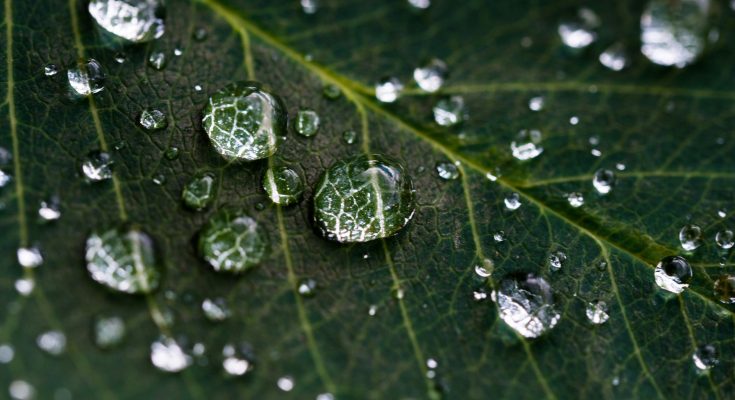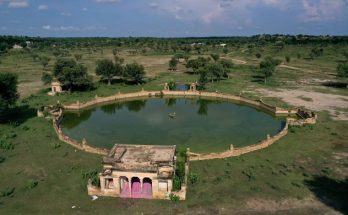This “save water essay” illuminates the environmental consequences of water usage, spotlighting the critical need for conservation. It reveals how overuse degrades ecosystems, endangers wildlife, and reduces biodiversity. Through compelling examples and data, the essay advocates for sustainable practices such as rainwater harvesting to safeguard our planet’s delicate ecological balance.
Nature’s Thirst- The Environmental Call to Save Water – 1200 words Essay
“Did you know it takes about 2,700 litres of water to make a single cotton t-shirt? That’s almost three years’ worth of drinking water for one person!
This staggering fact sheds light on the hidden water footprint behind the products we use daily, revealing the vast amounts of water consumed in processes far removed from our everyday sight. Water, the elixir of life, sustains not just humans but every organism and ecosystem on our planet. Its role in nurturing life extends beyond quenching thirst; it is the lifeblood of our environment, supporting the intricate web of life in forests, rivers, and oceans.
However, as we navigate through the conveniences of modern life, our collective actions exert immense pressure on this precious resource. The environmental impact of our water usage casts a long shadow, threatening the delicate balance that sustains life on Earth. From the vanishing rivers that no longer reach the sea to wetlands drying up, taking with them the rich biodiversity they support, the consequences of our water habits are profound and far-reaching.
In this essay, we delve into the heart of the matter, exploring the intricate relationship between human water usage and the environment. We stand at a crossroads, where the path we choose can lead to restoration and harmony or further degradation and loss. It’s time to reflect on our water use and its cascading effects on the natural world.
The call to ‘save water’ is not just a slogan; it is a clarion call for environmental stewardship, urging us to tread more lightly on this blue planet we call home.”
The Problem of Water Scarcity
Water scarcity has emerged as one of the most pressing environmental challenges of our time.
According to the United Nations, 2 out of 5 people globally face water scarcity, a situation that is only expected to intensify as populations grow and climates change.
This scarcity does not merely signify a lack of water to meet daily needs; it heralds a deeper crisis affecting ecosystems and biodiversity across the globe.
The environmental impacts of water scarcity are profound and far-reaching. As water becomes scarce, natural habitats undergo drastic changes. Wetlands, the Earth’s kidneys, are particularly vulnerable. These biodiversity hotspots rely on regular water flow to sustain their complex ecosystems. However, excessive water withdrawal for agriculture and urban development has led to the drying up of many such wetlands, disrupting the life cycles of countless species that depend on these habitats for survival.
Rivers, the lifelines of our landscapes, also face the brunt of water overuse. Many of the world’s great rivers now run dry before reaching the sea, altering landscapes and jeopardising the species that rely on these waterways. The disappearance of these rivers not only signifies a loss of water but also a loss of life and biodiversity that once thrived along their banks.
Furthermore, forests, which are vital for the Earth’s oxygen supply and climate regulation, suffer greatly from reduced water availability. The link between water, forests, and climate is a delicate balance. When this balance is disrupted, either through deforestation for agricultural expansion or through the impacts of climate change reducing rainfall, forest ecosystems face degradation and reduced resilience.
The problem of water scarcity extends far beyond the immediate lack of water for human consumption. It is a catalyst for environmental degradation, leading to the loss of habitats and species, and altering ecosystems in ways that can take centuries to restore. As we continue to explore the environmental impact of water usage, it becomes increasingly clear that the conservation of water is not just about saving water itself but about preserving the intricate web of life that water sustains.
Consequences of Excessive Water Use
Soil Degradation
One of the less visible but equally devastating effects of excessive water use is soil degradation, particularly through a process known as salinization. Over-irrigation, especially in arid and semi-arid regions, leads to the accumulation of salts in the topsoil, making it less fertile and significantly reducing crop yields. This not only impacts food production but also disrupts local ecosystems that depend on healthy soil.
Water Pollution
Furthermore, the overuse of water in agriculture and industry often results in runoff that carries fertilisers, pesticides, and other pollutants into rivers, lakes, and groundwater. This pollution poses a serious threat to aquatic life, killing fish and other aquatic organisms, and leading to algal blooms that deplete oxygen in water bodies, creating dead zones where life cannot survive.
Strategies for Conservation of Water
To address these challenges, a combination of sustainable practices and technological innovations is essential-
Sustainable Practices
- Efficient Irrigation- Adopting more efficient irrigation techniques, such as drip or sprinkler systems, can significantly reduce water wastage by delivering water directly to the plant roots where it’s needed most.
- Native Landscaping- Using native plants in landscaping is another effective strategy. These plants are adapted to the local climate and typically require less water, reducing the need for irrigation.
- Crop Rotation and Soil Management- Implementing crop rotation and other soil management practices can improve soil health, reduce water needs, and increase crop resilience to droughts.
Technology and Innovation
- Smart Irrigation Systems- Leveraging technology, smart irrigation systems can adjust watering schedules based on real-time weather conditions and soil moisture levels, ensuring water is only used when necessary.
- Water Recycling and Reuse- Advances in water treatment technologies have made it possible to recycle and reuse water for various purposes, including agriculture and industrial processes, reducing the demand for fresh water.
- Rainwater Harvesting- Modern rainwater harvesting systems can capture and store rainwater for use in irrigation, reducing reliance on groundwater or surface water sources.
As we reach the conclusion of our exploration into the environmental impact of water usage, it is clear that “every drop counts.” The health of our planet and the intricate web of life it supports are deeply intertwined with how we use and conserve water. The journey through the statistics of water scarcity, the degradation of habitats, and the consequences of our actions on soil and water quality underscores a critical message- the sustainability of our environment hinges on our collective efforts in water conservation.
The urgency of this issue cannot be overstated. With each passing day, the effects of water mismanagement become more pronounced, threatening not just the natural world but our future on this planet. It is a call to action that we cannot afford to ignore. As the saying goes, “We never know the worth of water till the well is dry.” Let’s not wait for the well to run dry before we act.
In light of this, I urge you, the reader, to become a steward of water conservation. Simple actions such as fixing leaks, using water-efficient appliances, adopting rainwater harvesting, and supporting sustainable agriculture practices can have a profound impact. Beyond individual actions, it’s crucial to advocate for and support policies and initiatives aimed at protecting our water resources and promoting sustainable water management.
Together, we can turn the tide, ensuring that our blue planet remains vibrant and life-sustaining for generations to come. Let us embrace the ethos of conservation, for in the conservation of water, we conserve life itself.
Essay 2 on Save Water – Wealth in Water – Economic Insights on Saving Water
Essay 3 on Save Water- The Social Aspect of Water Conservation
Also Check – Essay on Air Pollution in India- Current Challenges and Future Strategies
Also Check – Essay of Soil Pollution
Also Check – Essay on Air Pollution
Also Check – Also Check – What is the Carbon Footprint in Simple Words? – A Guide for Young Minds
Also Check – Global Warming and Climate Change Essays- Innovative Perspectives and Solutions
Also Check – Essays on Save Earth- 3 Diverse Approaches to Environmental Preservation



